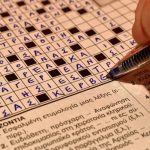Have you ever found yourself putting off tasks, especially ones you’re not looking forward to? You’re not alone. But what if I told you that the way we lean towards negative or positive attitudes could play a big part in this habit? Researchers from The Ohio State University have delved into this phenomenon, known as valence weighting bias, to understand better how our attitudes influence our tendency to procrastinate.

Let’s break it down a bit. Valence weighting bias is a psychological term that explains how people might react to new situations by drawing more from their positive or negative attitudes. In simple terms, when faced with a task, do you focus on the negatives and keep putting it off, or do the positives encourage you to tackle it head-on? Russell Fazio and Javier Granados Samayoa conducted several studies to explore this concept further.
Their research, published in the journal Personality and Individual Differences, involved a series of studies that linked a more negative-leaning attitude to procrastination. Interestingly, they found that it’s possible to shift this bias towards neutrality, helping strong procrastinators to start tasks sooner rather than later. One study involved participants reporting their habits around filing tax returns, a task with both positive (“I’ll feel good once it’s done”) and negative (“It’s an aversive task”) signals. The results showed a clear link between a negative weighting bias and delayed tax filing.
Another study focused on college students participating in research for course credit. It looked at whether students’ self-control levels and their motivation influenced their procrastination. The findings suggested that students with a negative weighting bias and low motivation or self-control were more likely to delay participating in the research program.
The third study aimed to see if changing participants’ valence weighting bias could affect their behavior. By balancing how participants weighed positive and negative signals, researchers found that students began accumulating credit hours for their participation more quickly than those who maintained a negative bias.
Interestingly, the researchers also found that a negative weighting bias could have its advantages, such as being more realistic in assessing one’s preparedness for a test. The key takeaway here is that while having a strong inclination towards either positivity or negativity can influence our behavior, being more balanced might be the most beneficial approach.
This insightful research sheds light on the psychological processes behind procrastination and offers hope for those looking to overcome it. By understanding and potentially adjusting our valence weighting bias, we might find it easier to tackle those burdensome tasks we’ve been avoiding.


